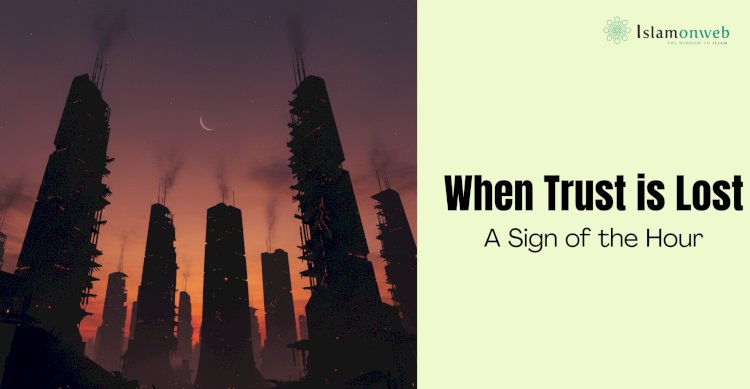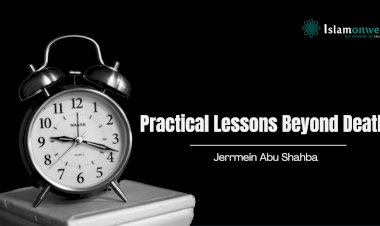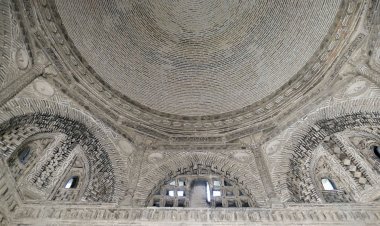When Trust is Lost: A Sign of the Hour
A society where amānah (trustworthiness) does not prevail is a society deprived of moral stability and genuine progress. It is almost impossible to imagine the consequences of losing this foundational virtue—one deeply rooted in human history—because amānah is the true foundation of success, prosperity, and social peace. It is one of the divine laws (sunan) that sustain human life and maintain the order necessary for safety and harmony.
When this virtue is cast aside, chaos inevitably takes hold. Deceit becomes common in dealings, and injustice dominates. The principle of “survival of the most cunning” replaces “survival of the most righteous.” Such moral decay contributes to the collapse of civilisations and the erosion of nations’ social fabric.
Sociologists often say, “A nation without trust is a nation without civilisation.” Human experience throughout history confirms this truth: amānah is an indispensable moral necessity—without it, life cannot flourish or function properly.
However, the gradual disappearance of trust and the drying up of its sources is something foretold and inevitable. This is not a mere observation born of human analysis, but rather a prophecy revealed by the Messenger of Allah ﷺ himself, describing it as one of the signs of the Hour.
To understand this, we turn to the authentic collections of ḥadīth. Among them is the narration of ʿAbdullāh ibn ʿAmr رضي الله عنه, who reported that the Messenger of Allah ﷺ said:
“The Hour will not be established until obscenity and indecency become widespread, ties of kinship are severed, neighbours mistreat one another, and the treacherous is trusted while the trustworthy is deemed treacherous.”
(Musnad Aḥmad; Jāmiʿ al-Tirmidhī)
This ḥadīth clearly indicates that the loss of amānah is among the final signs of the end times. The Prophet ﷺ did not merely warn of negligence in upholding trust, but foretold a complete inversion of moral standards—when the one known for betrayal will be seen as reliable, while the truly honest will be accused of treachery.
The Gradual Disappearance of Amānah
Among the most vivid descriptions of the loss of amānah is the ḥadīth narrated by Ḥudhayfah ibn al-Yamān رضي الله عنه, who said:
“The Messenger of Allah ﷺ told us two things. I have seen one of them and I am waiting for the other. He told us that amānah descended into the roots of men’s hearts, then they learned from the Qur’an, and then they learned from the Sunnah. Then he told us about its removal:
A man will sleep, and amānah will be lifted from his heart, leaving a faint trace like a burn mark. Then he will sleep again, and it will be lifted completely, leaving a trace like a blister — as if you rolled a live coal over your foot so that it raised a blister; you see it swollen, but there is nothing inside.
Then people will begin to trade with one another, and hardly anyone will return trusts. It will be said: ‘Among such-and-such tribe there is a trustworthy man.’ And it will be said about a man: ‘How wise, polite, and strong he is,’ yet there will not be in his heart faith even equal to a mustard seed.”
(Agreed upon – al-Bukhārī and Muslim)
The Prophet ﷺ began the narration by saying, “Amānah descended into the roots of men’s hearts,” meaning that trustworthiness was originally implanted deep within human nature — as an innate moral foundation. The word jadhar (root) denotes the very core or origin of something, signifying that amānah once formed the essential fibre of human character.
When he ﷺ said, “A man will sleep, and the amānah will be lifted from his heart,” scholars explained this in two possible ways. It may refer to its literal removal — that amānah is taken suddenly from the heart — or metaphorically, indicating its gradual fading as moral consciousness weakens over time.
His description “like the trace of a burn” (al-wakt) refers to a slight mark left on the skin, while “like the blister” (al-majl) alludes to the hardened swelling that remains after physical strain or heat — a surface sign devoid of substance beneath. Thus, what remains of amānah in such hearts is merely a trace, without any living essence.
The Prophet ﷺ then illustrated how this moral corrosion will affect society: transactions will continue, but honesty will vanish; amānah will become so rare that people will mention it as an exceptional quality, saying, “There is one trustworthy man among such-and-such people.” Worse still, moral perception will be distorted — people will praise cleverness and worldly sophistication, yet such individuals will be devoid of true faith.
Imām al-Nawawī explains that the amānah mentioned here refers to the divine trust — the responsibility that Allah placed upon humankind — as in His saying:
{Indeed, We offered the trust to the heavens and the earth and the mountains, but they declined to bear it and feared it; yet man undertook it. Indeed, he was unjust and ignorant.}
(Sūrat al-Aḥzāb, 33:72)
When amānah firmly resides in the heart, it compels a person to fulfil all obligations revealed in the Qur’an and Sunnah — in harmony with the fiṭrah (innate disposition) upon which Allah created mankind. Its presence strengthens faith and ensures upright conduct.
But as the ḥadīth warns, a time will come when amānah will be stripped away from hearts. The once-trustworthy person will turn treacherous, his faith corroded by sinful acts that destroy his good deeds and erode his spiritual integrity. This deterioration is further fuelled by constant companionship with the deceitful, for as the saying goes, “A person follows the religion of his close companion.”
The Fading Light of Amānah in the Heart
The Prophet’s ﷺ choice of words in describing the loss of amānah is profoundly eloquent. His imagery captures the spiritual decay of the believer as he loses this virtue. It begins as a faint mark upon the heart — almost imperceptible — then deepens over time. The darkness of the heart grows as the light of amānah diminishes, until this noble quality remains merely as a distant memory, a fleeting emotion that no longer shapes one’s conscience.
At that point, only the shadow of amānah remains among people — its outward form without its inner reality. One may look at a man and assume he is trustworthy from his appearance, yet his heart holds nothing of it, just as a blister appears full but contains nothing of substance. It is like a soap bubble — bright, inflated, and admired for a moment, yet hollow within and fleeting in existence.
As time passes, those who truly embody amānah become exceedingly rare. People will strive to find someone they can trust in trade, promises, or treaties, yet will find none but betrayers. The situation will grow so dire that people will say, “Among the tribe of so-and-so there is one trustworthy man,” out of sheer amazement that such a person still exists. We seek refuge in Allah from reaching such a time.
The Prophet ﷺ further described this condition in another ḥadīth narrated by ʿAbdullāh ibn ʿAmr رضي الله عنه, who said that the Messenger of Allah ﷺ said:
“How will you be when a time comes soon upon you in which people will be sifted as flour is sifted, and only the worthless residue will remain — those whose covenants and trusts are corrupted; they will differ and dispute with one another.” The Prophet ﷺ then interlaced his fingers, illustrating their confusion and division.
They asked, “What should we do, O Messenger of Allah, when that happens?”
He replied, “Adhere to what you know (of truth), abandon what you disapprove of, attend to your own affairs, and leave the affairs of the general people.”
(Abū Dāwūd, Ibn Mājah)
The term ḥuthālah used in the ḥadīth refers to the dregs or refuse, the lowest remnants of people. The phrase “their covenants will be corrupted” (marijat ʿuhūdahum) means their pledges and trusts will be confused and violated, as people abandon faithfulness and integrity.
Through this prophetic warning, the Messenger of Allah ﷺ revealed what the state of humanity will become near the end of time: the disappearance of amānah, the loss of honouring promises, and the prevalence of discord, where the trustworthy and the deceitful are indistinguishable. In such an age, the believer is instructed to focus on rectifying his own soul, fulfilling his duties to Allah to the best of his ability, and not to be harmed by the misguidance of others — as Allah the Exalted says:
{O you who believe! Take care of your own selves. He who goes astray cannot harm you if you are rightly guided.}
(Sūrat al-Māʾidah, 5:105)
The Loss of Amānah: The First Crack in the Moral Foundation
The narrations indicate that the removal of amānah from people’s hearts marks the first stage of moral decay in societies — the beginning of deviation and corruption in values and conduct. This is confirmed by the words of ʿAbdullāh ibn Masʿūd رضي الله عنه, who said:
“The first thing you will lose from your religion is trust (amānah), and the last thing that will remain is prayer.”
(Al-Ḥākim in al-Mustadrak, authenticated by al-Dhahabī)
His statement carries the ruling of a marfūʿ (Prophetic) narration, for it conveys knowledge of the unseen.
Some might think that the “loss of amānah” mentioned in the ḥadīths refers only to betrayal in material trusts or deposits. In reality, amānah has a far broader meaning — it encompasses the entirety of religion. Man is entrusted with his body, which is not his possession but a trust from its Creator; hence he must not use it in ways displeasing to Allah.
This broad understanding is evident in many Prophetic sayings. The Prophet ﷺ said:
“The one consulted is entrusted.”
(Reported by the authors of Sunan)
He ﷺ also said:
“The believer is the one from whom people feel safe regarding their lives and their wealth.”
(Musnad Aḥmad)
And he ﷺ said:
“When a man tells another something and then turns away, it is a trust.”
(al-Tirmidhī)
Likewise, he ﷺ warned:
“Among the greatest betrayals before Allah on the Day of Resurrection is that a man discloses the secret of his wife after being intimate with her, and she does the same.”
(Ṣaḥīḥ Muslim)
Such teachings show that amānah extends to every sphere of life — speech, confidentiality, relationships, duties, and faith itself.
The loss of amānah is no trivial matter. It is a grave indicator of spiritual illness that breeds hostility, breaks bonds, and invites divine displeasure. The Prophet ﷺ made its seriousness clear when he said:
“There is no faith for the one who has no trust, and no religion for the one who has no covenant.”
(Musnad Aḥmad)
This ḥadīth reveals the inseparable link between amānah, faith (īmān), and religion (dīn). Neglecting it does not expel one from Islam but diminishes the perfection of faith — it is a deficiency in īmān, not its total negation.
ʿĀʾishah رضي الله عنها narrated that the Messenger of Allah ﷺ said:
“Keeping promises is part of faith.”
(al-Ḥākim, authenticated by al-Dhahabī)
Thus, fulfilling one’s promises and safeguarding trusts are integral aspects of religion. Whoever perfects his faith by maintaining them will attain the reward promised by Allah:
{And who is truer to his covenant than Allah?}
(al-Tawbah, 9:111)
Even in travel — a situation that naturally involves hardship, distraction, and the risk of neglecting duties — the Prophet ﷺ would emphasise the preservation of amānah. ʿAbdullāh ibn ʿUmar رضي الله عنهما reported:
“Whenever the Messenger of Allah ﷺ bid farewell to a traveller, he would take his hand and say: ‘I entrust your religion, your trust (amānah), and the last of your deeds to Allah.’”
(Aḥmad, Abū Dāwūd, al-Tirmidhī, Ibn Mājah)
This beautiful supplication demonstrates how deeply amānah is woven into every aspect of faith — as a trust from Allah that must be protected until one’s final breath.
Amānah: A Divine Command and a Moral Trust
The Qur’an explicitly commands the fulfilment of amānah and forbids its betrayal. Allah the Exalted says:
{Indeed, Allah commands you to render trusts to whom they are due.}
(Sūrat al-Nisāʾ, 4:58)
He also warns against treachery:
{O you who believe! Do not betray Allah and the Messenger, nor betray your trusts while you know (the truth).}
(Sūrat al-Anfāl, 8:27)
The Sunnah further emphasises the gravity of betrayal. The Prophet ﷺ said:
“Woe to those entrusted, who neglect their trusts on the Day of Resurrection.”
(Musnad Aḥmad)
Betrayal (khiyānah) is among the defining traits of hypocrisy. Abū Hurayrah رضي الله عنه narrated that the Messenger of Allah ﷺ said:
“The signs of a hypocrite are three: when he speaks, he lies; when he makes a promise, he breaks it; and when he is entrusted, he betrays.”
(Agreed upon – al-Bukhārī and Muslim)
The Prophet ﷺ clarified that whoever possesses one of these traits carries within him a branch of hypocrisy until he abandons it.
He ﷺ also prohibited reciprocating treachery, making khiyānah an exception to the general principle of lawful retribution. While the Qur’an allows proportional response in justice —
{And if you punish (your enemy), then punish with the like of that with which you were afflicted.}
(Sūrat al-Naḥl, 16:126) —
betrayal is condemned under all circumstances. Taking one’s rightful due is justice, but repaying treachery with treachery is injustice. The Prophet ﷺ said:
“Render the trust to the one who entrusted you, and do not betray the one who betrays you.”
(Abū Dāwūd, al-Tirmidhī)
Conclusion
The matter of amānah is one of immense weight. Its neglect opens the door to every form of corruption and calamity. The loss of trust among people is not merely a social flaw — it is a spiritual crisis that weakens faith and destabilises communities.
Reviving amānah must therefore stand among the foremost priorities of daʿwah and moral reform. Preachers, educators, and community leaders must dedicate time and effort to cultivate this virtue deeply within hearts, until honesty, reliability, and faithfulness once again define the Muslim character — as they did in the earliest generations.
Only through the restoration of amānah can societies regain their moral balance, their divine protection, and their true prosperity.
Prepared based on Arabic Article published on Islamweb:
https://tinyurl.com/2tjbv3v6
Disclaimer
The views expressed in this article are the author’s own and do not necessarily mirror Islamonweb’s editorial stance.
























Leave A Comment